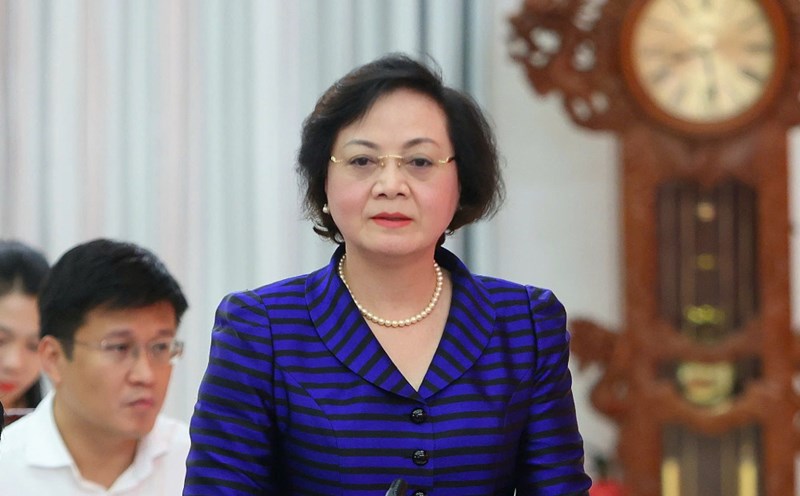On July 13, at a conference on the implementation of the two-level local government model, Minister of Home Affairs Pham Thi Thanh Tra mentioned the organization of decentralization and delegation of power between the central and local governments, as well as within each province.
The Minister of Home Affairs suggested that it is necessary to resolutely assign the responsibility for recruiting, using and managing civil servants to the commune level if they have been decentralized according to the law. "As a commune-level public service unit, the commune level is responsible for reviewing, arranging, recruiting, appointing, and managing according to regulations," said the Minister.
This is a clear message showing strong determination to decentralize, to promote the effective and substantial operation of local governments at both levels.
Because one of the major challenges after switching to the two-level model is how to make the commune level truly have enough rights and capacity to serve local people.
In reality, the commune level is the closest place to contact people, the place to receive and handle a huge amount of administrative work - with more than 500 administrative procedures being directly assigned according to statistics from the Ministry of Home Affairs.
However, if there is still a mentality of maintaining rights at the upper level and the commune level, not having full authority to arrange people and organize jobs, the grassroots government will always be passive, dependent and have difficulty promoting the proactive role of governance.
The right to recruit, use and manage civil servants at the commune level, especially in public service units such as health, education, etc. is not only in accordance with the law, but also a practical requirement.
The commune-level government is the one who knows best who is suitable for which position, what is the real need for human resources and employment, and like that, must also be the place that is directly responsible for the quality of the personnel they use.
Of course, along with empowerment is the responsibility to explain. The commune level that has the right to recruit must also be inspected and evaluated periodically.
Assigning authority does not mean being lax. On the contrary, it is a test of the capacity, mettle and sense of responsibility of the grassroots government. Those who do well will be trusted and given conditions to continue developing; those who do not do well will be supervised, adjusted, or replaced.
The Ministry of Home Affairs is finalizing the guidance system on organizational structure, job positions, and not yet assigning a strict payroll is reasonable for localities to have a flexible adaptation period, before entering stable organization from 2026.
From the determination of the Central Government, it can be seen that the decentralization orientation is clear with the motto "locality decides, locality does, locality is responsible". However, whether the locality dares to do it or not is another matter.
It is necessary to make a commitment to give authority to the commune level, from recruiting civil servants to organizing the apparatus for the grassroots to proactively operate the government more effectively. But this will only be effective when commune-level leaders really dare to do and dare to take responsibility.












